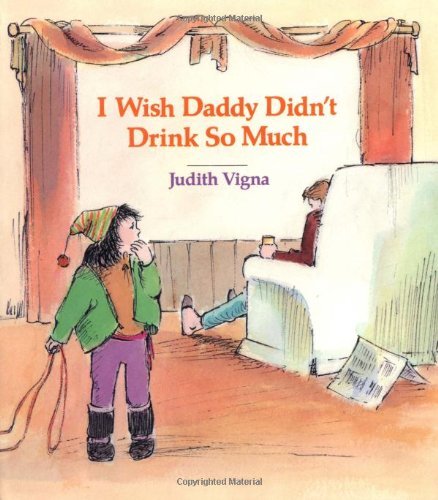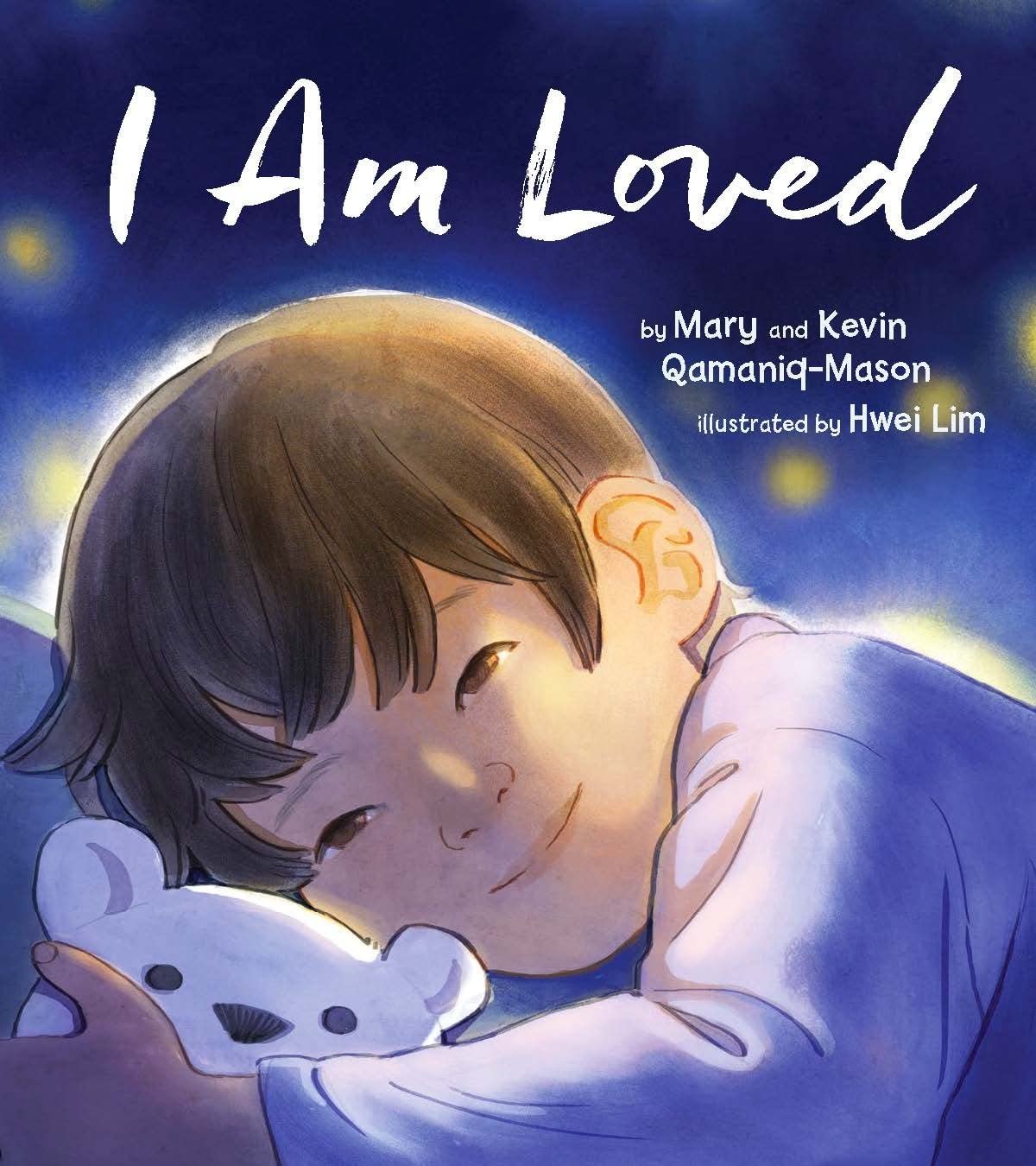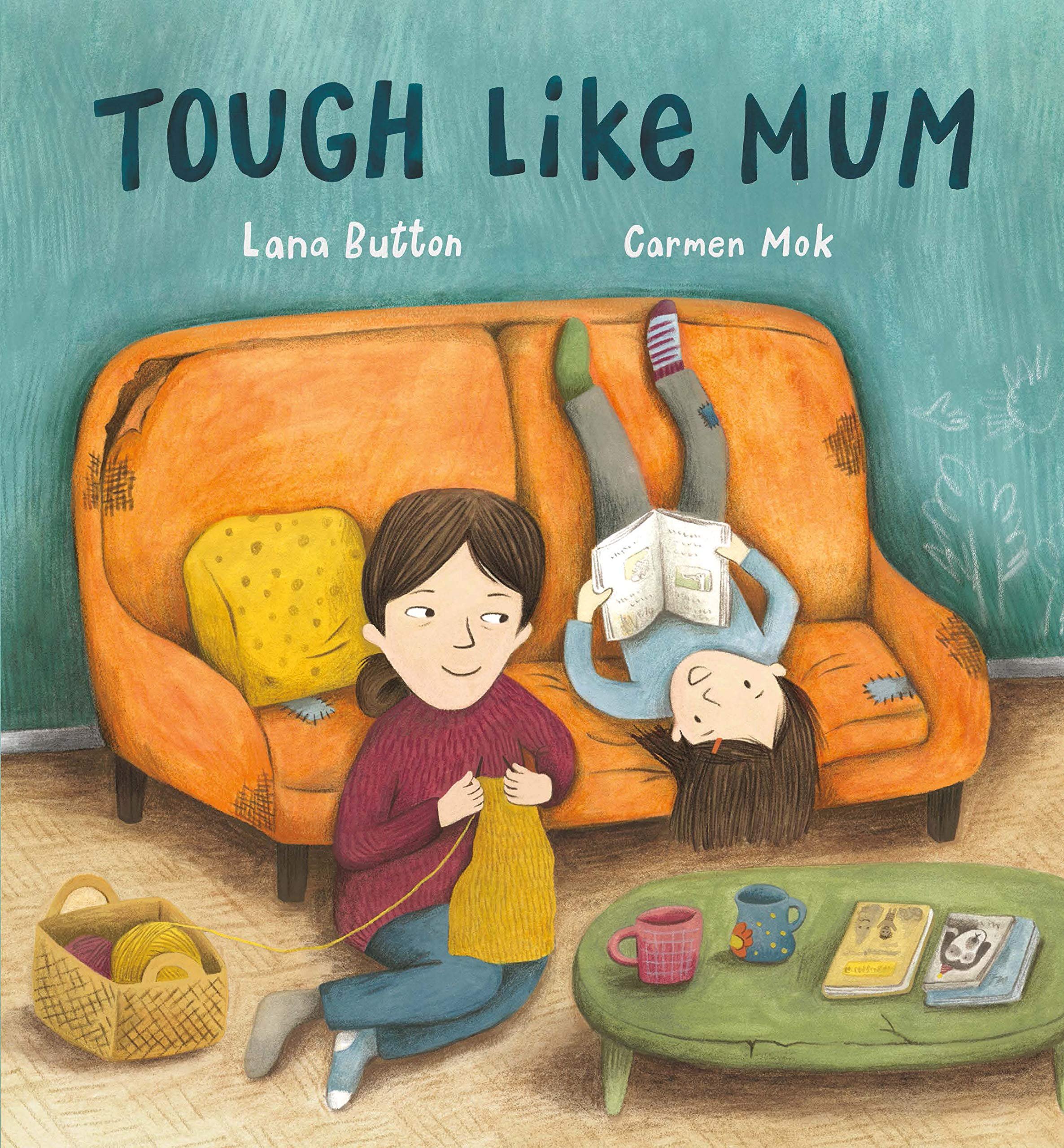On Heartbreak, Addiction, and Mental Health
"The deeper that sorrow carves into your being, the more joy you can contain.” - Khalil Gibran
Here is something that I find scary to contend with in children: pure and simple heartbreak. Beloved toys are broken; dogs die; best friends move away. Inevitably things happen that break our children’s hearts. I personally still remember when my best friend stopped playing with me at recess, moving on to a cadre of more popular girls. I walked down the stairs to recess alone, trying to busy myself by breaking up the ice on the ground with the toe of my boot. If there was a snapshot of what happened to my heart as she pushed open the front doors of the school, it would be of the heart that cracked.
Publishers do not want to publish books about difficult topics. Even doing the work I do, I can count on my fingers the number of books on divorce, on parental abandonment, and on addiction. Child heartbreak scares publishers and it scares parents. But here is the thing: we need to remember that heartbreak allows our children’s heart to break open and to heal instead of turning turn to stone. Loss and possibility are entwined. And in this beautiful broken world where tender green tendrils sprout from scorched earth, I don’t want my children to lose touch with their bleeding hearts.
Heartbreak is everywhere. Here is one. One of my sons and I passed a man asking for money outside the grocery store. After I gave the guy money, my son, age 5, said, flatly, with an inflection I may never forget: “The government should go to jail, the government is a criminal, that a person does not have a home.”
“What is a child?” asks author Beatrice Alemagna. “A child has small hands, small feet and small ears. But that does not mean they have small ideas. Children’s ideas can sometimes be very big.”
Children are small and the world is huge. It is too big and too unfair and we want to and try to protect our children from this truth. And yet their worlds are inflected with world-things everywhere. I heard a parent talking about talking about death to their child when I was pregnant. "Oh, I just lied," they said blithely. "I said we don’t die." Oh, I will never do that I said to myself with the unbelievable hubris of someone who had never had a terrified child cry out to them “what will I do if you die mummy?” My point is, these conversations, these problems, are hard. They are hard and overwhelming and half of the time, I don’t know have the answers to give my children life in bite-size chunks.
In her beautiful memoir improbably titled We Are the Luckiest, Laura McKowen describes the “special kind of vitriol saved for mothers who become addicted.” Explaining the herculean task of swimming out of the ocean of addiction, when the tides of shame threatened to take her under, Laura McKowen says that part of what helped her was a woman who approached her at a meeting of people struggling with addiction:
“I have daughter, too,” she said, “and I get it, what you’re feeling.”
I nodded. More tears.
“I know, I know,” she continued, touching my arm lightly and looking straight at me. “It’s the absolute worst. But you need to know, you can push off form here. You can leave all that behind.”
For Laura McKowen, "push off from here" helped, for her it meant not facing all of the shaming events that led to her drinking all at once: “I thought I had to fall on the sword for everything I’d ever done. Immediately. Which kept me drinking, in some sense, because it was all just too much.” She reminds us, “Pushing off from here is not absolution for your mistakes; it is a posture of possibility instead of despair. It is an understanding that with time and action, you can and will make reparations and move into a place of being okay. Even great.”
And this is why picturebooks are so priceless. We need them so badly. Asked if I knew some picturebooks on addiction, I came up with very few. And yet, the COVID-19 pandemic has only strengthened our need for these conversations. Here are some books to help us chart that way forward.
I Wish Daddy Didn’t Drink So Much
by Judith Vigna
Lisa’s daddy drinks too much. He stumbles around sometimes and spills things on the carpet. Lisa finds this behaviour scary, but she still loves the sled he built just for her. He pretends to be Santa delivering it, and leaves her a special note to go with the sled:
Dear Lisa
Your dad promised me
he’ll take you sledding
right after breakfast.
Even though she knows the note is not from Santa, Lisa is excited: “Daddy and I haven’t had any fun in a long time.” But then after breakfast, Daddy “growls” at her and refuses to go sledding. Lisa and her mommy cook the turkey together, but the mood is tense. Mommy’s friend Mrs. Field is supposed to come over, they “met at a meeting for people who have a lot of drinking in their family.” Although Lisa’s father never is able to join them, Lisa and Mommy head to Mrs. Field’s and they end up having a lot of fun. Lisa’s daddy is asleep when she gets home, but the next morning he attempts to make it up to her, telling her he loves the Christmas card she made him, and that next “Sunday we’ll go sledding, I promise.”
Lisa says straightforwardly: “I didn’t really believe him about Sunday, but I guess it’s okay. He said he loved me, and my sled is still my best Christmas present ever.” And then, with the wisdom of so many children who struggle with parents who are there and not there simultaneously, parents who are visible but who remain, in the words of Alison Bechdel, "under the plexiglass dome," Lisa comes to some peace: “I really hope Daddy takes me sledding on Sunday. But if he’s sick again, I’ll try not to mind. If I take my sled to Mrs. Field’s, and Mommy comes too, I’ll be doing my next most favorite thing.”
Children are so wise, sometimes they are so wise it is painful. Here in my hometown of Ottawa, the canal has not frozen for the first time ever, and it appears there will be no skating this year. “It seems warmer this winter mommy, doesn’t it?” said one my sons. And so it does, so it does. “I’m glad there’s still ice-skating though,” he said, “even if it’s the kind that goes in a circle. After going the kind of skating that you do straight on a canal, the circle kind is my next favourite.”
I Am Loved
by Kevin Qamaniq-Mason and Mary Qamaniq-Mason, illustrated by Hwei Lim
This beautiful book is somewhat unique. There are not enough books that describe the complex experiences of children in foster care. As there are more Indigenous children in state custody through foster care today than there were at the time of residential schools, we urgently need picturebooks to address the realities Indigenous children face as a result of the ongoing crisis of settler colonialism. Pakak has just moved to a foster home. He feels lonely and overwhelmed: new food, new people, new smells. Pakak poignantly describes how much he misses his family while simultaneously struggling with feelings of anger towards his mother. This book is so skillful at describing how intolerable uncertainty feels, while documenting the complex ways that children talk themselves through feelings of deep ambivalence about challenging things that happen to them.
"I wish I could know what’s going to happen next. When I don’t know what will happen, I feel scared and angry.
Then I felt so angry, I put Anaana’s picture under my bed.
I know that my Anaana loves me more than anything else in the whole universe! Even though she loves me that much, sometimes she can’t take care of me. That’s not my fault.
It’s not her fault, either. She is doing the best she can to get healthy in her body and her mind and her heart. If she gets healthy enough to take care of me, then maybe I can live with her again."
Pakak calms himself by reminding himself of a secret that his beloved grandmother told him: he is loved, no matter where he is:
"If [Anaana] can’t keep me safe, then I will live with someone who can. Siqiniq, the Sun, loves me. When I’m not sure what’s going to happen to me next, I close my eyes and turn my face up to Siqiniq. I know I am safe and protected when I feel Siqiniq shining all around me. Taqqiq, the Moon, loves me. Sometimes when I am in bed at night and I feel alone, Taqqiq send beams of light to me. Then I know that I am not alone."
This set of what sometimes gets appropriated as “mindfulness” exercises shows how children calm themselves in the face of impossible uncertainties, a form of heartbreak that is increasingly commonplace in children's lives. Family breakdown and addiction are on the rise for all of the systemic reasons as we endure the ongoing effects of the pandemic and the housing crisis and the rising costs of food and everyday goods. I Am Loved pictures what “all my relations” and a feeling of being loved in the world might feel like and how it can offer children comfort.
Tough Like Mum
by Lana Button, illustrated by Carmen Mok
Tough Like Mum is spare, beautiful, simple and complex: like so much of life and like so many mother-daughter relationships. Although it is not explicitly stated, it seems that Kim’s mum is depressed and cannot go to work. Kim and her mum are supposed to be tough, but not having enough money is tough, as is a mum that doesn’t get up to make breakfast or pack Kim’s lunch. Kim gets herself ready, but there’s no milk for cereal, and “just ends” for lunch: “the last two pieces of pepperoni and a mustard smile.” But even when Kim’s ready to leave for school, her mom is not awake yet: “no matter how much I shake, she won’t uncurl. ‘Don’t start on me, Kim!’” Her voice says, I mean it!"
Kim dreads “that look”: the look of pity that others give her because she does not have enough money. One mother gives Kim “that look” for not having a hat; a teacher gives her “that look” for not having the $6 to go on the field trip. The day is full of challenges, but:
"Lunch is the worst. David’s always got something to say. He yells so everyone hears, ‘Kim’s eating a butt sandwich!’ I make my face tough like Mum. But deep inside where no one sees, I’m a whole bunch of sad and mad. . . Sometimes when I get home Mum is making dinner full of funny stories about who came into the Red Rooster. But today she’s at the table wearing what she slept in last night. Mum looks . . . like she could use some soup. I heat the stove to make this soup taste good. I stir out all the lumps and pour two bowls. I slide one bowl to mum. She slides it back. 'Eat. You’ll feel better.' My voice says, I mean it."
Oh, the million ways children are parentified. I feel such a tug in my heart every time my youngest son says “Don’t worry mummy” or “Take some deep breaths.” Yes, this is a source of wisdom. But how unfair is it that we as parents, systemically and individually, burden our children with worries beyond their years. Anything from depression to anxiety to the climate crisis. It’s hard, it’s hard. And yet. After Kim and her Mum have a staring contest over their bowls of soup, they find they are giggling and eating together, cuddling in bed together to shake off the day.
This morning my youngest son came in to put on his clothes before school. He stood at the open window, letting in the morning air. “I wish I could just skip school and breathe in this air all day” he said to me. "Don’t you want to breathe in the air too mummy?” I felt wonder at his words, wonder and grief and something more, amazement at this wisdom. "Where did you learn to do that?" I asked him, “Just take in the moment like that?” “Oh, from a book,” he told me casually.
Oh, the love children have for their parents! We their parents who fail and fail and fail them in all kinds of ways. And who also go on to heal their brokenness and our own. To heal and to heal and to heal and to model making mistakes and growing and repairing our fragile selves so that they are stronger than they were before. I have been reading some new science on addiction, and it suggests that people who are in recovery are stronger than before: they have more skills, more strength, more what therapists would call "capacity." That is, addiction and recovery are growthful, even if we would not wish this form of growth on our worst enemies. We cannot protect our children from some of life’s harsh realities. To pretend they don’t exist is only to make our children feel confused, to pretend not to see what is right in front of their eyes. Part of all of these picturebooks is to show children they are not alone in having feelings that overwhelm them.
My favourite memoir on addiction remains Caroline Knapp's memoir: Drinking: A Love Story:
“This is why I drank” says Knapp. And endlessly, the reasons are an inability to bear her own feelings for one. more. minute. Those very feelings that threaten to swallow you up and overwhelm you: “The drink may have become the main obstacle between you and any hope of change, but a hundred other obstacles lie behind it and most of those have to do with emotions, the very beasts you never learned to contend with in any other way”. As Knapp says, “Sometime I think I am literally phobic about feelings. A few nights before the two year anniversary of my mother’s death, I found myself alone at home, with an unplanned evening ahead. I stood there in my living room at one point and I could sense it, an edge of emptiness and grief tugging at me, and I wanted to run, flee, eradicate it. This is why I drank. This is why I drank. The feeling is immediate and laced with panic, and so is the response: Anesthetize me. Fuck it. In the end…the feeling abated, as it always does despite your unshakable conviction that it won’t. And then the feeling passed. Another moment, gotten through without a drink. Another emotional muscle flexed. . . . I try to remember that one simple [drink] never solved anything, that the way to the other side of a bad feeling is through it, not around it. . . . Not long ago I heard a woman in her ninth month of sobriety say that before she quit drinking, she had only two emotions, anxiety and despair. “now I have, like, too many to count,” she said, “and some of them suck, but some of them are really, really good.”
And from these books too I am learning so much, how to give and how to receive, how to be tough and how to soften, and how to speak with my children about this challenging, wearying, endlessly beautiful world. How to feel and bear those feelings. And how to teach my children to do the same.
I hope you are too.


